June 1, 2021
After being housebound for more than a year due to COVID-19 restrictions, many vaccinated Westerners are eager to travel again — and tour operators are only too happy to oblige.
Costa Cruises is among the companies booking trips through the Mediterranean this summer. While cruise ships are a common sight in the region, in the last year, they've also been put to a less glamorous use.
Italy, more than most countries in the region, has been struggling to deal with the thousands of migrants from Africa and the Middle East who risk their lives to cross the Mediterranean. Every week, hundreds are rescued at sea. The Italian public has become increasingly resistant to bringing them into the country, and the pandemic has only hardened that resolve.
The ships have become giant, floating holding pens.
In an attempt to save lives while containing the spread of COVID-19, in 2020 the Italian government chartered nine cruise ships. Staffed by the Italian Red Cross, they are meant to quarantine migrants rescued at sea, in order to keep them from bringing COVID-19 ashore. The ships have become giant, floating holding pens.
Last fall, I spent time on La Suprema, a lavish vessel that can carry nearly 3,000 passengers. Almost 215 metres long, the ship has 567 cabins, three restaurants, a dozen or so shops, a casino, a movie theatre and a nightclub.
I had first learned about the quarantine ships from my friend Francesco Taskayali, a 29-year-old Italian pianist, who has been working as a Red Cross volunteer since last September. The Italian government had forbidden any journalists from boarding these vessels, so I, too, applied to work as a Red Cross volunteer.
Taskayali was originally assigned to another quarantine ship, the Allegra. On La Suprema, he performed odd jobs. He brought migrants cellphone chargers, shampoo and tampons. He fitted them for shoes, which most had arrived without. He also plunged toilets, which were often clogged with underwear, flushed by migrants to protest their confinement on the ship.
Because the Red Cross knew my main goal was to report on life aboard La Suprema, my only job was dinner duty, checking names and ID numbers on a clipboard as the migrants were handed a tray.
WATCH | Life aboard La Suprema:
Ben Meissner/The Outlaw Ocean Project with special thanks to the Pulitzer Center
On any given day last fall and winter, several hundred migrants and a few dozen Red Cross staff were on board La Suprema. The passengers were confined to designated floors and areas, which were cordoned off with barriers of clear-plastic sheets that had been taped across doorways, to lessen the potential flow of COVID-contaminated air.
The ship felt less like a vacation destination than a nursing home — humid with worried waiting and smelling of boiled broccoli and carrots. The ship's gold-coloured railings served as clotheslines. The video game arcade had become a medical storage closet, with boxes of latex gloves, hand sanitizer and toilet paper stacked between the Galaga and Pac-Man machines.
Most of the time, we were anchored about one and a half kilometres from shore, off the coast of Sicily. We were circled at all times by two patrol boats from Italy's Guardia di Finanza, which polices immigration and financial crimes.
Several times a day, Red Cross staff led the migrants out of their cramped hallways to the ship's upper deck, where they were allowed half-hour recesses.
The migrants spent most of their time sitting on the floor in the hallways outside their cabins, huddled around their cellphones. The cabins typically held two or three people, the majority of them men between 15 and 25 years old, from Tunisia, Egypt, Libya, Somalia, Bangladesh or Eritrea.
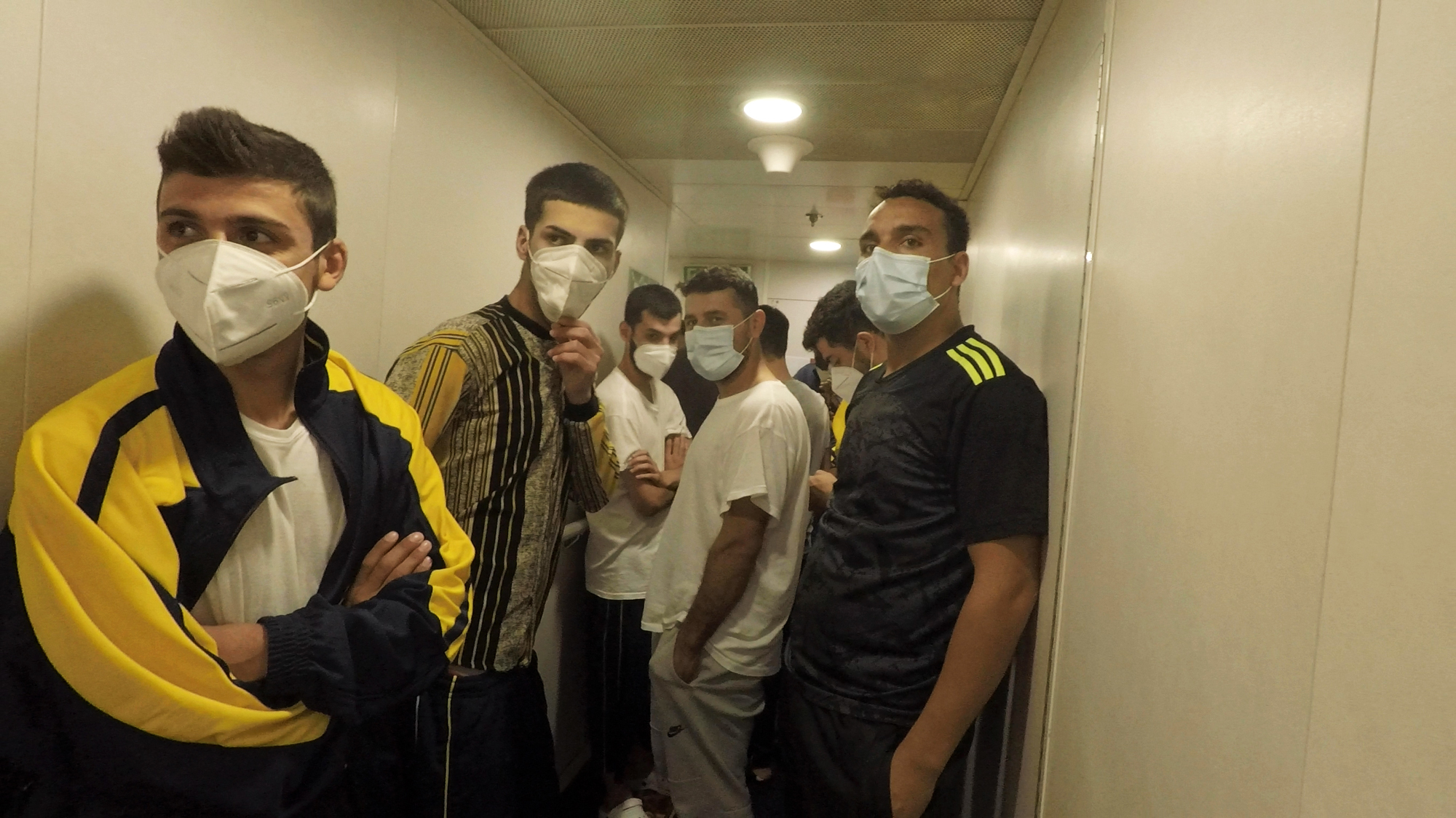
Most of the migrants told me they deeply appreciated the Red Cross workers, but felt imprisoned at sea and desperately feared deportation once they reached land. If migrants can't prove that they are fleeing conflict or persecution, rather than poverty, Italy typically rejects their claims for asylum.
Several of the migrants I saw had extensive fuel burns: During their attempted crossings, gasoline had spilled in their dinghies, where it had mixed with seawater and then come in contact with their skin. People sitting or lying in the bottom of the dinghies are at the highest risk of such burns.
At night, Taskayali's job was to stand watch on the eighth-floor deck, to ensure that none of the migrants went outside, where they might try to jump into the water and swim to shore.
During my week on La Suprema, the ship pulled into port twice to disembark people whose quarantine period had ended. The first time, as people left the vessel, they were met by police officers standing at the water's edge, waiting to usher them onto buses and transport them to one of Italy's many "reception centres." They collectively house more than 75,000 migrants, most of whom are awaiting decisions about their asylum applications.
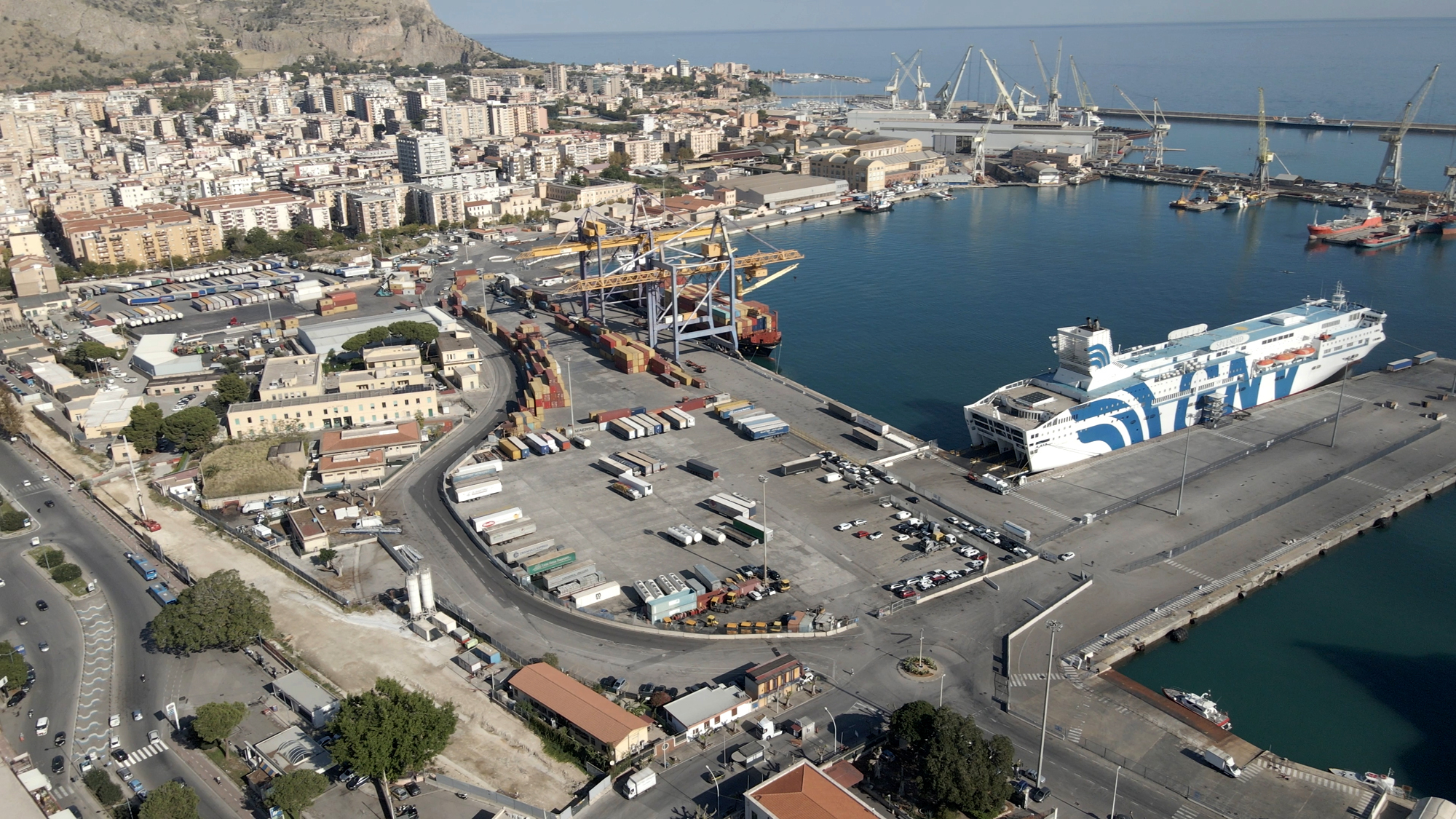
The second time La Suprema came into harbour, at the Port of Augusta, in the east of Sicily, I watched the police grow impatient with a teenager who was scheduled to disembark. They wanted to arrest him, for reasons they did not disclose. Batons drawn, several uniformed officers walked up the ramp and onto the ship and grabbed the boy, who fell to the ground and tried to wriggle free. Other migrants began yelling. Shoving escalated into punches. The captain of La Suprema rushed to the scene.
"You have no authority here," he yelled at the officers. "You will leave my ship immediately!" They left, but soon after, the boy was removed from the ship by the Red Cross and arrested.
What happened after was nothing short of chaos. On board the ship, several migrants who had witnessed the scene went to their rooms, where they drank shampoo and other chemicals to induce vomiting, believing that their chances of staying in Italy would be greater if they were to land at a hospital. At the end of October, nine Tunisians on one of the other quarantine ships had been evacuated after swallowing razor blades.
"If Libya is hell and Europe is heaven, this is purgatory," Taskayali said to me one night at dinner.
According to the United Nations, more than 2.5 million migrants have made unauthorized crossings of the Mediterranean since the 1970s. In recent years, migration has spiked as asylum seekers have fled war and political instability in North Africa. Since 2000, more than 35,000 migrants have drowned or gone missing.
After the toppling of the dictator Muammar Qaddafi in 2011, the number of migrants using Libya as a departure point increased significantly, because people-smuggling networks could now operate there without constraint. In late 2013 and 2014, the Italian government plucked more than 140,000 people from the sea. The government's hope was that Italy's European neighbours would follow suit and provide rescue vessels, funding and, most important, places to resettle the migrants.
That didn't happen. As the rest of Europe failed to assist, Italian sentiment toward refugees curdled, and the government pulled back from rescues at sea. By 2016, various charities — including Save the Children and Médecins Sans Frontières — were trying to fill the gap.
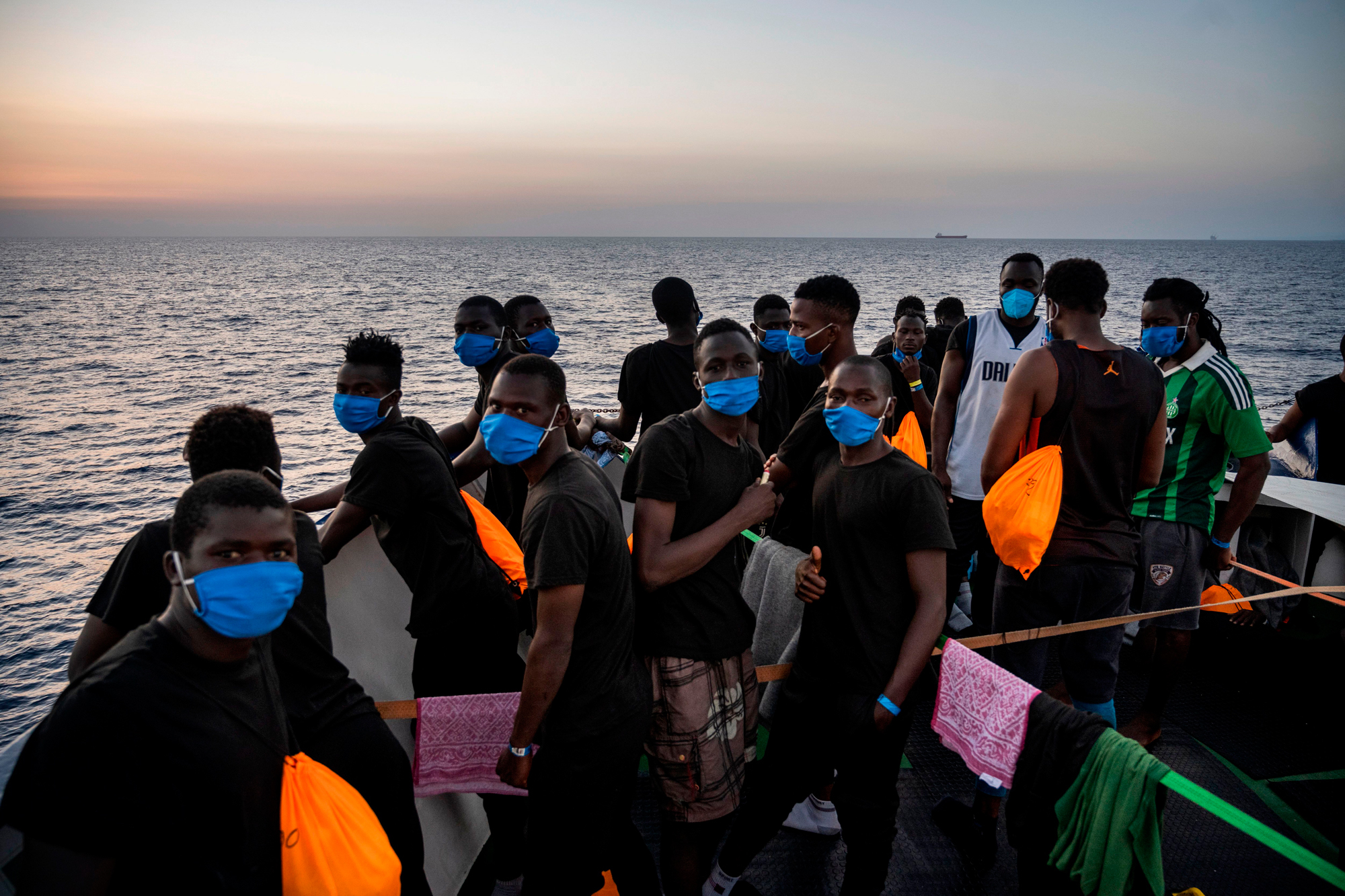
As part of an EU program called Operation Sophia and a subsequent deal between Libya and Italy, the latter agreed to provide ships, training and millions of euros to Libya's coast guard. Operation Sophia began despite mounting evidence that Libyan smugglers, security forces and the coast guard itself were committing atrocities against migrants. According to a 2017 report by the German embassy in Niger, the detention centres in which Libya was confining migrants featured "concentration camp-like conditions"; the report documented widespread torture, rape and executions. In September 2018, the UN High Commissioner for Refugees declared that nowhere in Libya should be considered safe for people rescued at sea.
Around the same time, Italy's populist parties accused charity rescuers of operating "sea taxi" services for migrants. Within two years, prosecutors in Italy had opened criminal investigations against at least 12 NGO vessels for aiding and abetting illegal immigration.
The Italian government justified these actions by claiming that sea rescues encourage migrants to attempt the dangerous crossing. But Matteo Villa, a migration researcher at the Italian Institute for International Political Studies, has found that people make their decisions about whether to attempt a crossing based primarily on weather and local political conditions. Villa said rescue operations at sea do not increase the number of people who cross, and in fact "what we find is that the number of average daily migrants departing from Libya remains the same, and is in fact higher when NGO boats are not around."
These rescue operations do, however, significantly reduce the number of people who die trying: Villa determined that when such operations were disrupted by the Italian government in the first eight months of 2019, the death rate along the sea route from Libya more than tripled, from 2.1 per cent to 6.7 per cent. By the end of 2020, virtually all the NGOs had stopped conducting sea rescues, mostly because their ships had been detained by EU authorities. According to Médecins Sans Frontières, the Libyan coast guard intercepted more than 11,700 migrants at sea last year, delivering many of them to the detention facilities deemed unsafe by the UN. This was the situation during my time on La Suprema — except that COVID-19 had made matters worse.
It's hard to miss the irony in using cruise ships to forestall the spread of the coronavirus. One of the first serious COVID-19 outbreaks outside China was on the Diamond Princess, a British cruise ship that had stopped in the port of Yokohama, Japan, in early February 2020. Roughly one-fifth of the passengers tested positive; about a dozen people ultimately died. Mass outbreaks followed on other ships.
According to Qingyan Chen, a mechanical-engineering professor at Purdue University, many cruise ships' ventilation systems rely on recirculated air sent through low- or medium-strength air filters, causing airborne viruses to spread far faster than on airplanes.
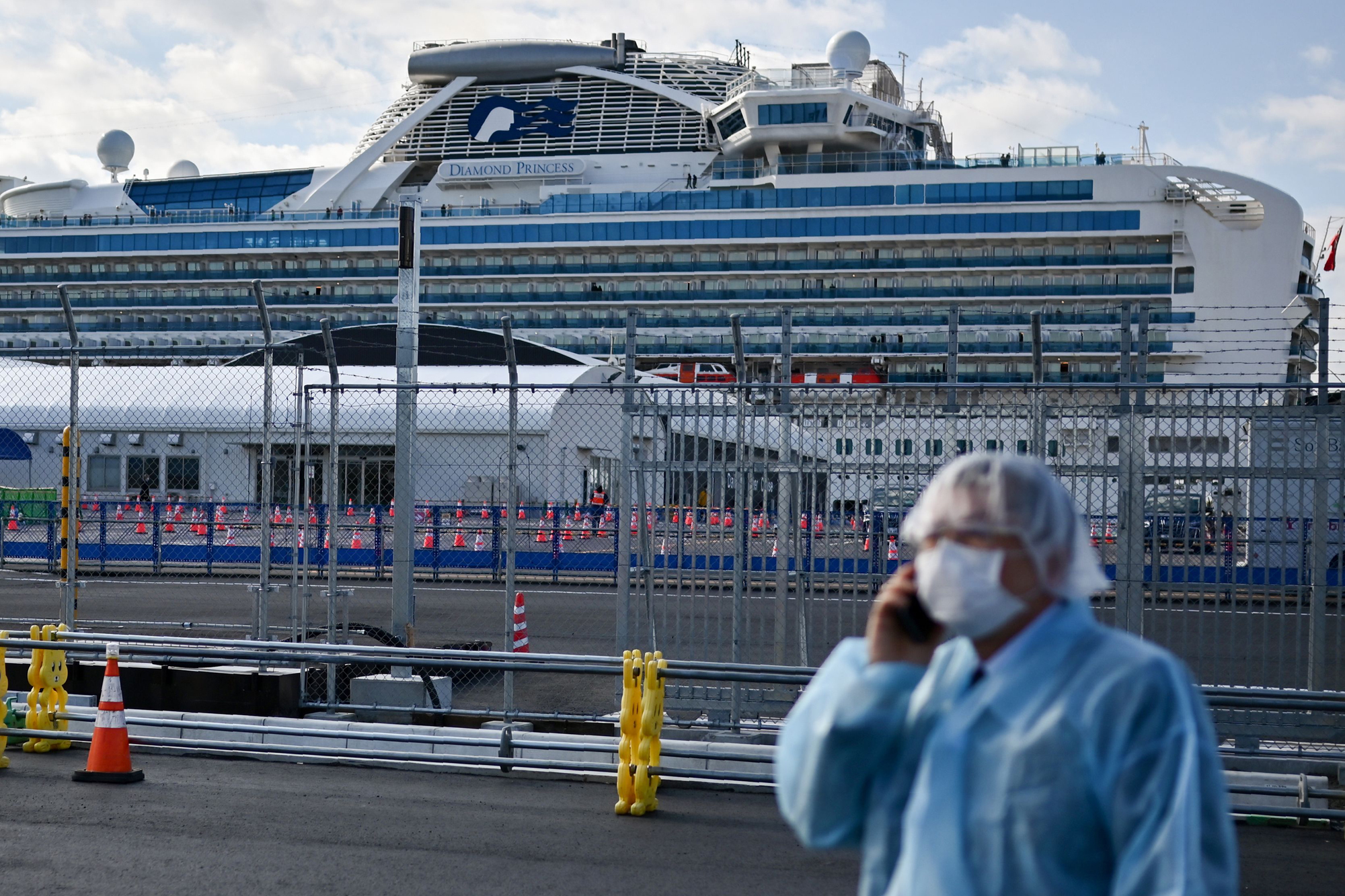
But for Italy, the ships seemed to offer an expedient way to quell domestic concerns. While Italian health officials insisted migrants had played only a "minimal" role in bringing the coronavirus into the country, Italy and other EU countries used fears about the virus to justify tightening their borders.
So Italy decided to charter cruise ships to serve as floating quarantine centres. Health professionals and immigrant advocates criticized the plan, raising questions about the quality of medical care, psychological support and legal assistance available on board.
One evening not long before I arrived on La Suprema, a commotion erupted in the COVID-positive section of the ship, which held roughly 100 to 150 people. Earlier that day, about 40 people had been informed that despite having already quarantined at sea for 10 days, they would be required to spend another 10 days in quarantine, because several of them were still testing positive.
That night, 20 Syrian men from the section slipped up a back stairwell to the uppermost deck. Worried that if the men dispersed, they would infect others on the ship, doctors at the scene phoned Andi Nganso, the medical director of the quarantine ships, who recommended bringing them some food and water and letting them remain where they were. The men stayed on deck all night — talking, singing, staring up at the stars — while the guards and Red Cross workers kept watch. The next morning, the men filed back to their rooms.
"Key is to de-escalate," Nganso told me.
A couple of weeks after that, Taskayali passed a Libyan migrant who seemed distraught. Concerned, Taskayali began following the man, who noticed and started to sprint. Taskayali followed him up to the eighth floor and onto the deck. The man began climbing a railing. Taskayali tackled him before he could jump.
Taskayali had assumed the man was trying to leap into the ocean — but looking over the railing, he saw not ocean but a concrete dock, eight stories down.
Nganso told me that no COVID-positive migrants on the quarantine ships had died or even needed to be intubated. "The real challenge," he said, "is mental health."
While he was on the Allegra, Taskayali found an upright Yamaha in the back of an empty restaurant. Word had spread among the Red Cross workers that a renowned pianist was in their midst, and several of them asked him to play a concert for them. He agreed, but asked if he could do a concert for the migrants, too.
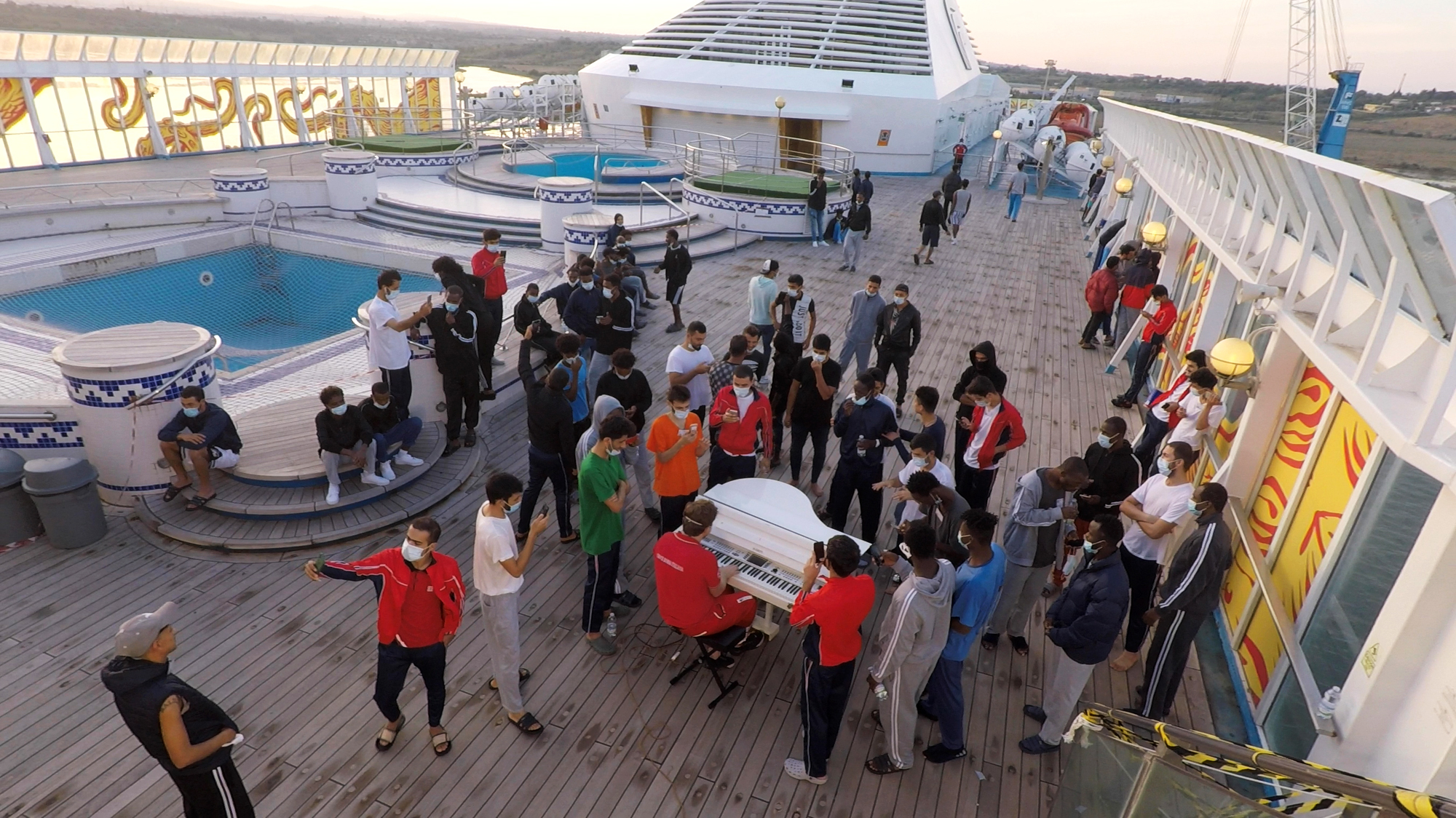
On La Suprema, I watched Taskayali play while a group of women from Sudan and Nigeria danced. One time, he played a famous 19th-century Italian protest song, "Bella Ciao," which had been remixed in Tunisia into a popular song titled "Habiba Ciao." When the migrants heard the tune, they exploded into clapping and cheering, chanting "Italia!" and "Thank you, Red Cross!"
Taskayali also did a concert in the COVID-19 ward, a section of the ship we were normally forbidden to visit. After Red Cross workers helped us into hazmat suits, Taskayali played for half an hour. After the concert, I noticed a man in his mid-30s standing silently in front of the keyboard, weeping. "This man, so kind," the migrant kept saying. When Taskayali shyly tried to beat a hasty retreat, he was slowed by a gauntlet of migrants wanting to take selfies with him. As we peeled off our hazmat suits, Taskayali turned to me and said, "I've never experienced anything as beautiful."
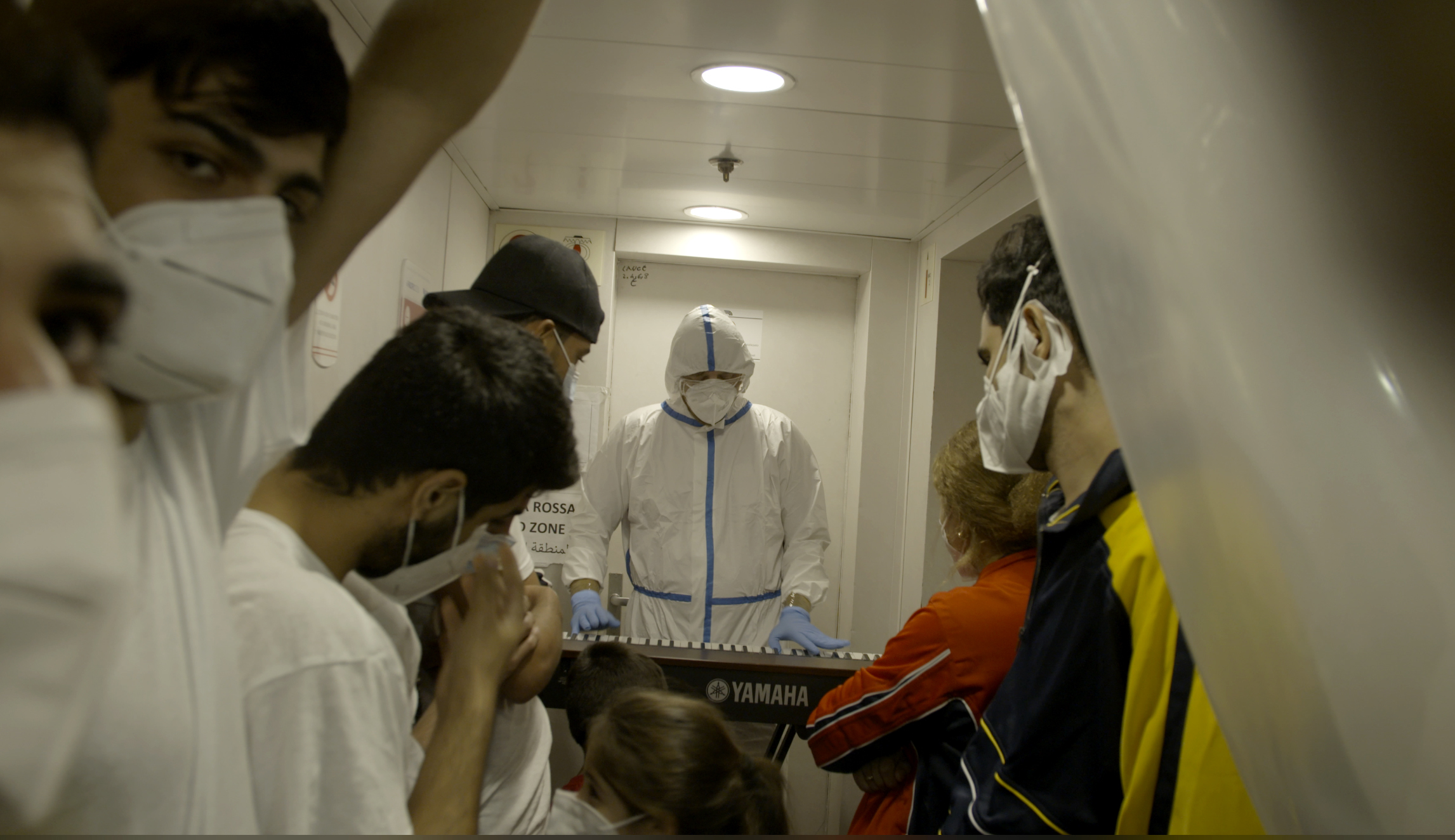
These moments of beauty stood out amid abiding pain. One afternoon, Taskayali was told to check on a recently arrived eight-year-old Tunisian boy who had migrated alone. Taskayali asked the boy whether he had any relatives waiting for him in Italy. He responded that he had a friend in France.
"But where are your parents?" Taskayali replied. Communicating with his hands, the boy indicated that his father had been hanged, and that his mother's throat had been slit.
One night on the Allegra, Taskayali met a 15-year-old from Ivory Coast named Abou Diakite, who had arrived after being rescued off the coast of Libya. At the time, Diakite was severely dehydrated and malnourished. He had scars on his limbs, which some thought may have come from his having been tortured in Libya.
A week after boarding the rescue ship, Diakite started suffering intense lower-back pain. He tested negative for COVID-19, and medical staff — suspecting a possible urinary-tract infection — put him on antibiotics. When he was transferred to the Allegra the next day, his fever had gone down and he seemed to be improving. But his condition soon worsened, and Red Cross officials requested that the health ministry allow an emergency evacuation, so that they could take Diakite to a hospital in Palermo.
The day before the evacuation, Taskayali stayed up all night writing Diakite a farewell song. It was meant to convey a sense of hope — what Taskayali imagined Diakite would feel when he finally arrived on land in Italy.
The next morning, Taskayali helped move Diakite onto a stretcher and down to the lowest deck. As he was taken away, Taskayali pressed his shoulder and said, "My friend — the land, finally." Barely conscious, Diakite did not reply. He fell into a coma and was transferred to a second hospital in Palermo. He died shortly thereafter.
Managing immigration flow is never easy; COVID-19 has only made it harder. At least in the short term, quarantine ships represent an alluring fix to a politically thorny problem, and Italy hasn't made any announcement about stopping the practice. But the cost of this solution is that it renders an already voiceless demographic even more invisible.
About the author
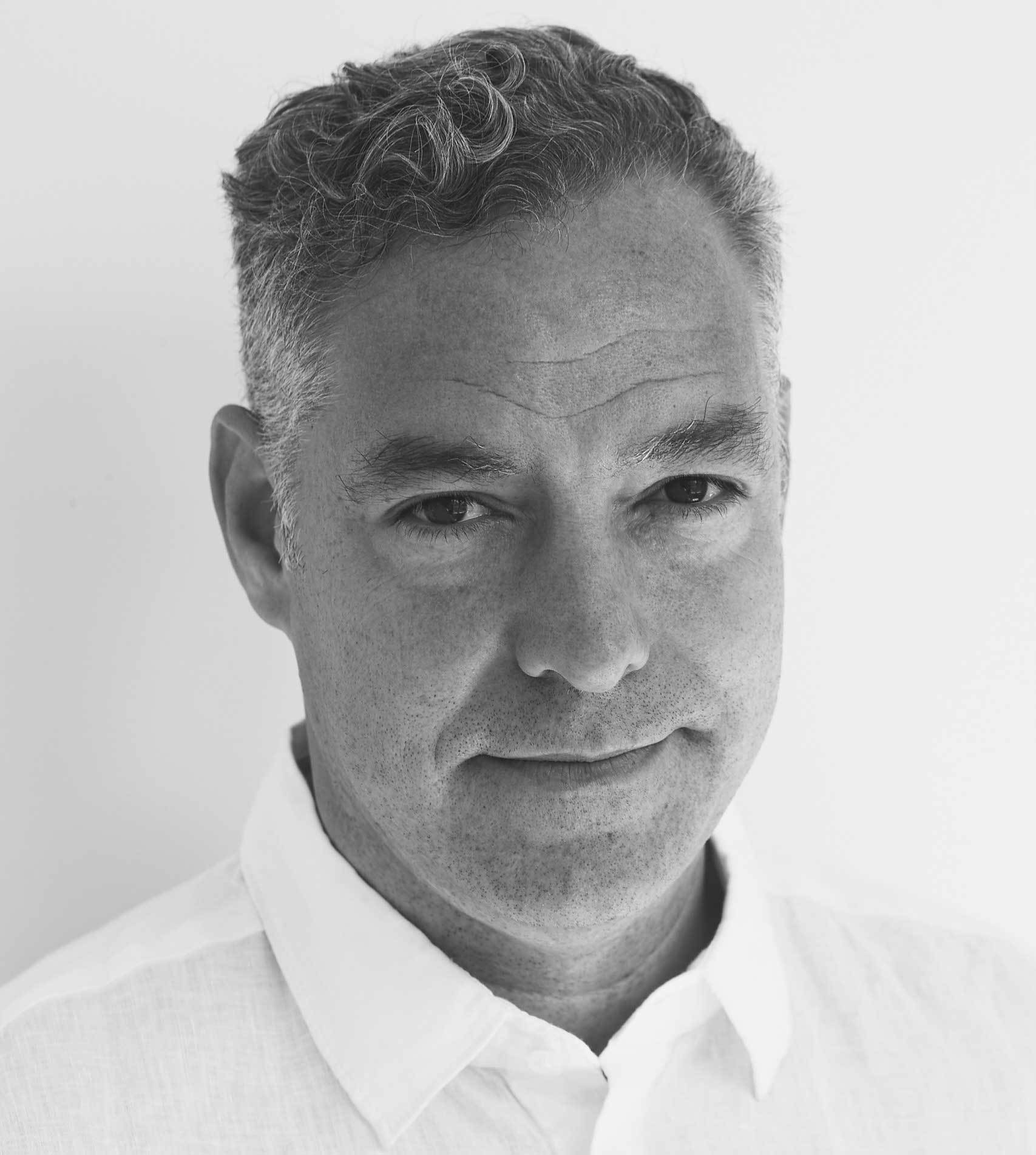
Ian Urbina is a former investigative reporter for the New York Times whose work has also appeared in The Atlantic, The New Yorker and elsewhere. He is the director of The Outlaw Ocean Project, a non-profit journalism organization based in Washington, D.C., that focuses on reporting about environmental and human rights crimes at sea. Some of his investigative work on this subject was collected in the book The Outlaw Ocean: Journeys Across the Last Untamed Frontier.
Follow him at @ian_urbina on Instagram and Twitter or @ianurbinareporter on Facebook.
